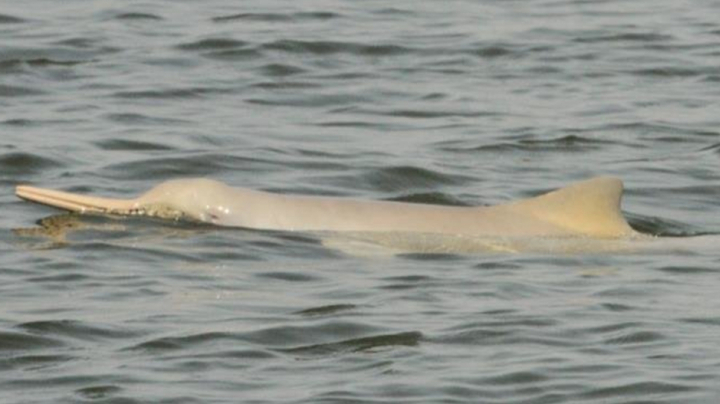
Marine mammals represent one of the animal taxons that has suffered and still suffers most the effect of human activities, and that face a highest extinction risk. As apical predators, marine mammals are particularly sensitive to the changes in the mean trophic levels of marine ecosystems, as well as to the reduction of their prey species. It has been generally found that this group plays an important role on community structures and dynamics, either through direct or indirect effects.
The franciscana dolphin (Pontoporia blainvillei) is an endemic species of Argentina, Uruguay and Brazil, and the most endangered little cetacean of the Southern Atlantic, listed as vulnerable by the IUCN. Moreover, the different aspects of the trophic ecology of this species of marine mammals have been scarcely documented. For these reasons, due to the obvious habitat deterioration caused by increasing fishing pressure, because food availability is critical to the well-being of the individuals and due to the general dynamics of their populations, the urgency of a study focused on the trophic habits of this species is clear.
The aim of this project is to research their trophic habits of the last 60 years in the influence area of Río de la Plata, in order to understand the adaptive response of this population stock against the effects of the global change. To achieve such goal, the plan is to, every decade, determine the feeding habits and the relative contribution of preys to their diet, as well as to estimate the level and trophic amplitude, by using an approximation based on the analysis of stable isotopes of bone tissue. This tissue, due to its low rate of renovation, acts as long term integrator of isotopic concentrations and moderator of sporadic isotopic fluctuations, which makes it useful for comparing isotope proportion between individuals over a long period of time.



